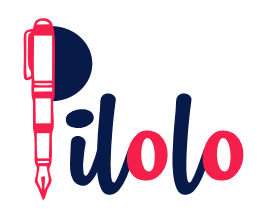The landscape of digital marketing is continually evolving, driven by advancements in technology and shifts in consumer behavior. One of the most significant recent developments is the rise of artificial intelligence (AI), particularly conversational AI models like ChatGPT. These AI models have the potential to revolutionize how users search for information, raising questions about the future of search engine optimization (SEO). If ChatGPT and similar AI technologies were to supplant traditional search engines, the implications for SEO would be profound. This blog explores what the future of SEO might look like in a world where ChatGPT dominates information retrieval.
Table of Contents
ToggleThe Current State of SEO
Traditional SEO Practices
SEO has long been centered around optimizing websites to rank higher on search engine results pages (SERPs). Key practices include keyword research, on-page optimization, backlink building, and creating high-quality content. These strategies are designed to align with search engine algorithms, primarily those of Google, which dominates the market.
The Role of Search Engines
Search engines act as gatekeepers of information, directing users to the most relevant content based on their queries. The process involves crawling, indexing, and ranking web pages. SEO professionals focus on understanding and leveraging the factors that influence these processes to improve their site’s visibility.
The Rise of Conversational AI
Introduction to ChatGPT
ChatGPT, developed by OpenAI, is a language model that uses deep learning to generate human-like text based on input prompts. It can perform a wide range of tasks, from answering questions to generating content. Its ability to understand and process natural language queries makes it a powerful tool for information retrieval.
How ChatGPT Differs from Traditional Search Engines
Unlike search engines that provide a list of links to web pages, ChatGPT delivers direct answers and relevant information in a conversational format. This can significantly enhance user experience by providing quick, precise responses without the need for users to sift through multiple sources.
Potential Impact on SEO
Reduced Reliance on SERPs
If users increasingly turn to ChatGPT for information, the traditional SERP model could become less relevant. This would reduce the visibility of web pages that rely on high rankings to attract traffic, fundamentally changing how websites approach SEO.
Shift in Content Creation Strategies
Content creation would need to adapt to meet the needs of AI models like ChatGPT. This might involve focusing more on structured data, creating highly authoritative and factual content, and ensuring that information is presented in a way that AI can easily digest and relay to users.
The Importance of Structured Data
Structured data would become even more critical in a ChatGPT-dominated landscape. Using schemas to mark up content helps AI understand the context and relevance of the information, increasing the chances of it being used in responses.
Evolution of SEO Techniques
4.1 Emphasizing Authority and Trustworthiness
With ChatGPT prioritizing reliable sources, SEO strategies would need to focus on building authority and trust. This could involve obtaining more high-quality backlinks, generating credible content, and fostering a strong brand reputation.
4.2 Optimizing for AI Algorithms
SEO professionals would need to understand and optimize for the algorithms that power AI models. This might include focusing on natural language processing (NLP) principles, ensuring clarity, conciseness, and context in content, and continuously updating information to maintain relevance.
4.3 Enhanced User Experience
Improving user experience (UX) would remain crucial. Websites should be designed to provide value quickly and efficiently, aligning with the direct response nature of ChatGPT. This includes optimizing page load times, mobile responsiveness, and overall site usability.
New Metrics and KPIs
Engagement Metrics
Traditional metrics like page views and bounce rates might become less relevant. Instead, engagement metrics such as time spent interacting with content and user satisfaction would gain prominence. Measuring how effectively content answers user queries would be key.
Integration with AI Tools
Tools that integrate with AI to track how often and how effectively content is used by ChatGPT could provide valuable insights. These tools might offer analytics on query relevance, content usage, and areas for improvement.
Opportunities in a ChatGPT-Dominated World
Content Personalization
AI can provide highly personalized responses, tailoring content to individual user needs. SEO strategies could leverage this by creating diverse content that addresses various user intents and preferences, enhancing personalization.
Voice Search Optimization
As AI models like ChatGPT are often integrated with voice assistants, optimizing for voice search would become increasingly important. This involves focusing on natural language keywords, local SEO, and concise, informative content.
AI-Driven Content Creation
SEO professionals can utilize AI tools to assist in content creation, ensuring it aligns with the formats and styles preferred by conversational AI. This can streamline content production and maintain high standards of quality and relevance.
Challenges and Considerations
Maintaining Visibility
Ensuring content remains visible and relevant in a ChatGPT-dominated landscape would be challenging. Continuous monitoring and adaptation would be necessary to stay ahead of algorithm changes and user behavior shifts.
Ethical Considerations
The rise of AI in information retrieval raises ethical concerns, such as the potential for misinformation and biases in AI responses. SEO professionals would need to prioritize ethical practices, ensuring the content is accurate, unbiased, and responsibly sourced.
Balancing AI and Human Touch
While AI can enhance efficiency and personalization, maintaining a human touch in content is vital. Balancing AI-driven strategies with human creativity and empathy would be essential for effective SEO.
Case Studies and Examples
8.1 Success Stories
Examining case studies of businesses and websites that have successfully adapted to an AI-driven SEO landscape can provide valuable insights. These examples can highlight effective strategies, common challenges, and innovative solutions.
8.2 Lessons Learned
Learning from past experiences and adapting to new trends will be crucial. SEO professionals can benefit from understanding the evolution of search engines and applying these lessons to navigate the shift towards conversational AI.
The Future of SEO Professionals
9.1 Evolving Roles
The role of SEO professionals would evolve, with a greater emphasis on data analysis, AI integration, and strategic content planning. Continuous learning and adaptation would be necessary to keep pace with technological advancements.
9.2 Skill Development
Developing new skills, such as understanding AI algorithms, natural language processing, and data analytics, would be crucial. SEO professionals would need to stay informed about emerging trends and technologies to remain competitive.
Conclusion
The potential for ChatGPT and similar AI models to disrupt traditional search engines presents both challenges and opportunities for SEO. By adapting to new technologies, focusing on quality and relevance, and embracing ethical practices, SEO professionals can navigate this shift and continue to thrive in a rapidly changing digital landscape. The future of SEO in a ChatGPT-dominated world may look different, but with strategic adaptation, it can still be a dynamic and rewarding field.
Appendix
A. Glossary of Key Terms
- SEO (Search Engine Optimization): The practice of optimizing websites to rank higher on search engine results pages.
- SERP (Search Engine Results Page): The page displayed by search engines in response to a user’s query.
- ChatGPT: A conversational AI model developed by OpenAI that generates human-like text based on input prompts.
- NLP (Natural Language Processing): A field of AI that focuses on the interaction between computers and humans through natural language.
- Structured Data: Data organized in a defined manner, often using schemas, to help search engines understand the context of content.
B. References
- OpenAI. (n.d.). Retrieved from OpenAI
- Google. (n.d.). Search Engine Optimization (SEO) Starter Guide. Retrieved from Google SEO Guide
- Moz. (n.d.). The Beginner’s Guide to SEO. Retrieved from Moz SEO Guide



